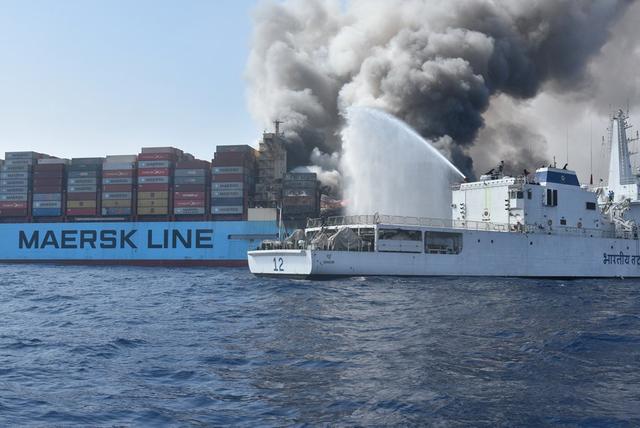India’s Top Inland Container Depots(ICDs) & Route Hacks to Save Time and Cost
Discover how India’s top Inland Container Depots (ICDs) can help exporters avoid port congestion and reduce haulage costs. Learn smart routi...
As an industry, it is important that we try to find the cause of such incidents and work towards a solution to mitigate them.

March was a busy month at work. Financial year-ends usually are. Although I do try to keep abreast of all important news and critical events in the industry, sometimes the schedule doesn’t permit it.
The news about the fire on Maersk Honam is one such missed incident. I came to know about the case whilst going through the industry updates of the past month.
As I understand from the media reports, it took almost 5 days to bring the fire under control. The firefighting efforts are still in progress. This explosion resulted in the death of 5 crew members, destroyed cargo worth millions, and caused heavy damage to a new (2017 built) vessel. For the shippers who had cargo on board, the nightmare has just begun. It may take months for them to get their cargo back (if it has been salvaged) that too after paying a huge sum of money as the Danish Liner has declared general average.
Why do we need to talk about this incident?
Even though fire on ships is not a frequent occurrence, it is a serious one. Thus, when such incidents occur, we must not brush them away as accidents. They signal an anomaly in the system or processes that are being followed.
Instead of stopping at mere reportage, these cases should be rigorously investigated for cause. And, we must collectively – shipping lines, regulatory authorities, NVOCCs, and traders – work to find solutions to mitigate such incidents.
To spark off the discussion, I am sharing a few questions that occurred to me as I read the media reports on the Maersk Honam Fire mishap.
Considering that the vessel was new, it raises a question regarding the construction plan of the ship/quality of the construction. One is compelled to ask if the ship’s construction plan was approved by the American Bureau of Shipping? Or was safety compromised in anyway to optimize design and reduce costs?

In addition to finding answers to the above questions, we also need to understand where we are lacking in our efforts to ensure ship safety:
While investigations will reveal the cause of the blast on Maersk Honam, till the time the report is released, we must engage in healthy debate on how to curb such incidents. As an industry, we must also work on educating ourselves, our teams, and our customers to make due diligence and safety first an integral part of our work. We owe it to the 5 sailors who lost their lives in the incident.
Image Source: @IndiaCoastGuard